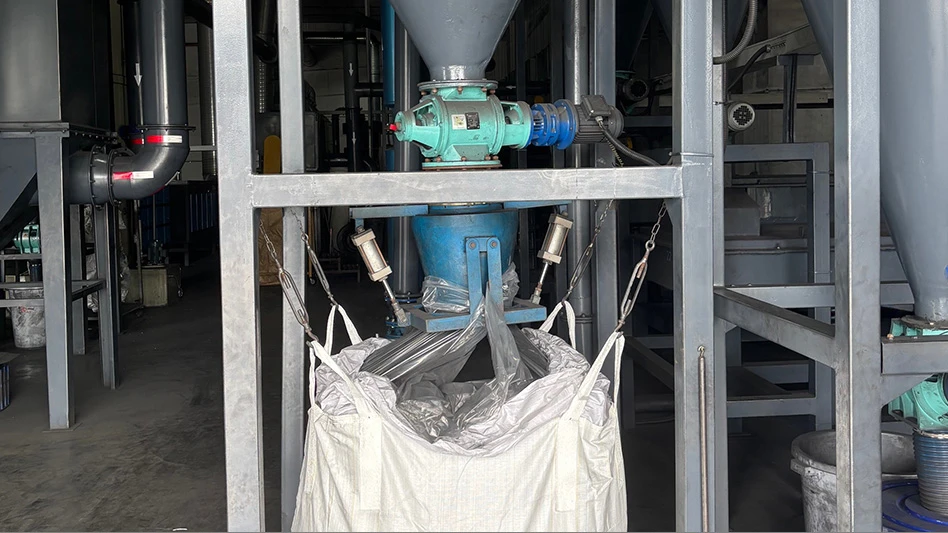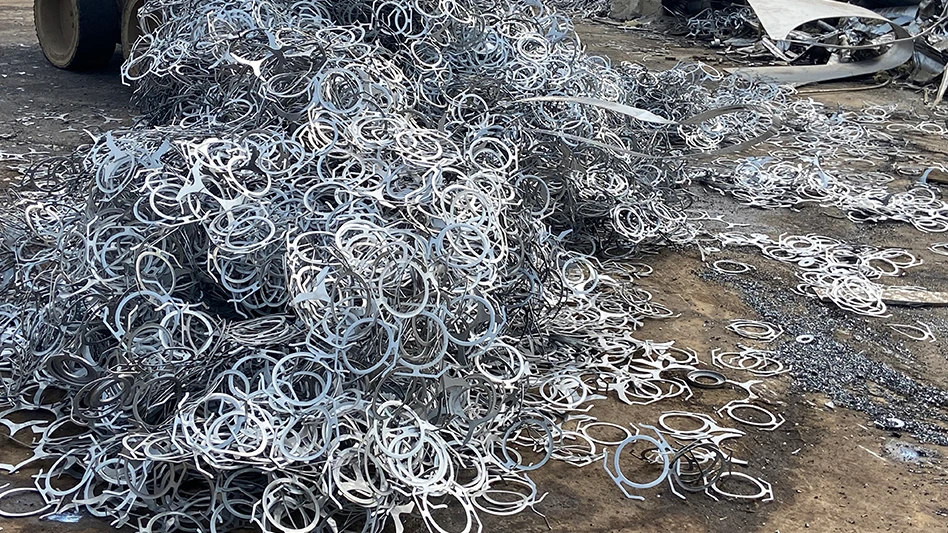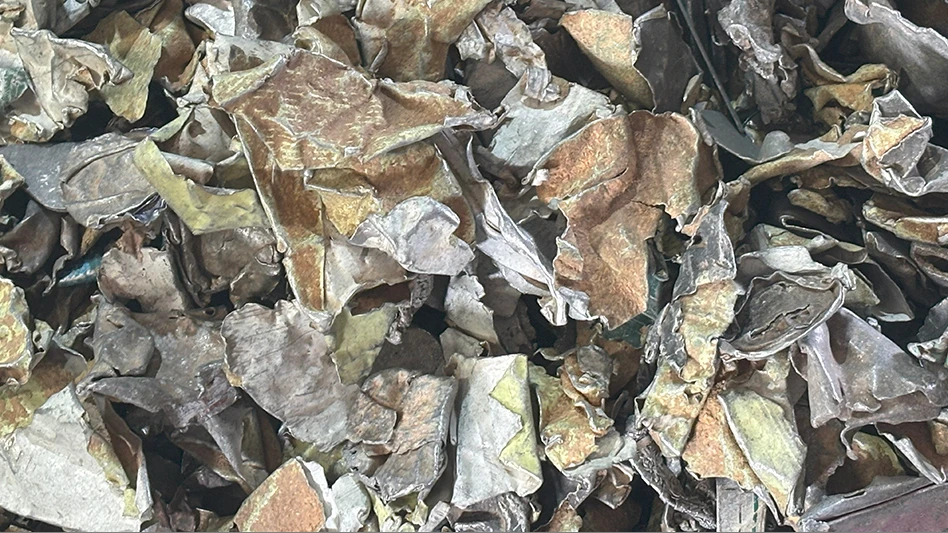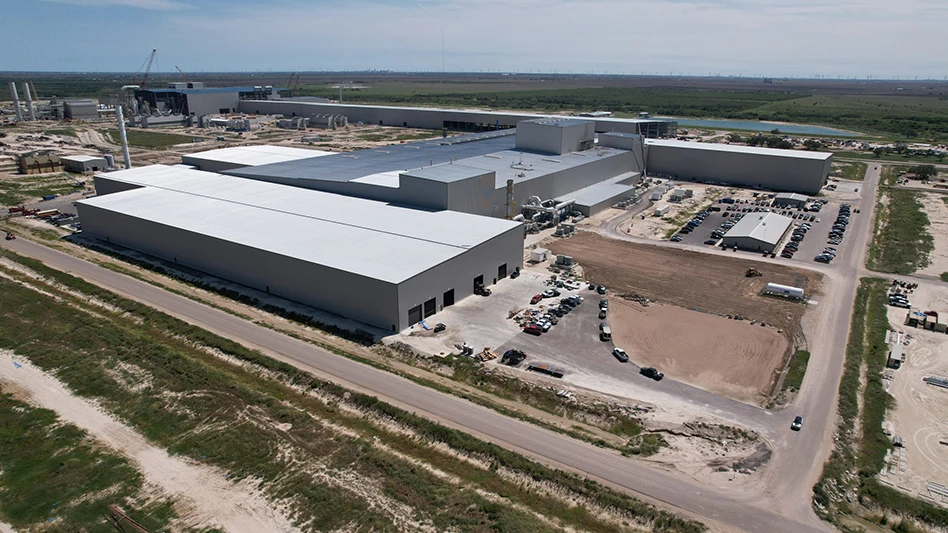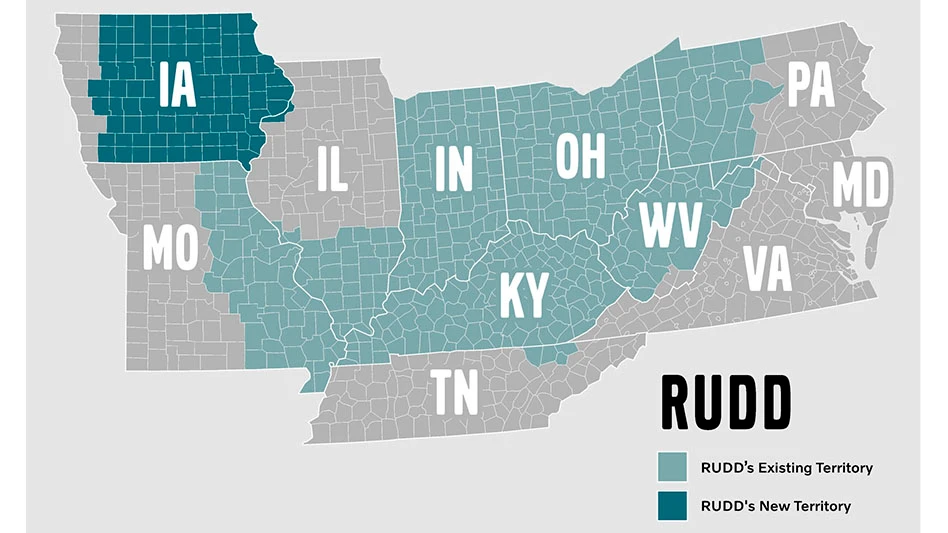
Recycling Today archives
Cost spreads of close to 600 euros ($649) per metric ton between recycled polyethylene terephthalate (rPET) food-grade pellets and virgin PET have caused some brands in Europe to reduce their recycled-content percentages, according to Matt Tudball, senior editor for recycling at London-based commodities consulting firm ICIS.
Tudball says the rPET market has turned bullish in the first quarter of this year, noting overall PET prices in Europe have seen some upward movement but are increasingly coming under downward pressure from cheap imports, which could see the spreads between virgin and recycled material widen further.
ICIS tracking indicates food-grade rPET pellets are selling at up to 1,800 euros ($1,948) per metric ton in Europe.
“This is in stark contrast to the current price of virgin PET, which still represents a significant cost saving in comparison to rPET flakes and pellets,” Tudball says.
“Several participants in the rPET market, including beverage brands, have said some brands and fast-moving consumer goods companies (FMCGs) are cutting back their use of rPET to the minimum contracted volumes, which for beverage bottles is often between 25 and 30 percent.”
That percentage, according to Tudball, is enough to meet a mandatory recycled-content target for beverage bottles to comply with the European Union’s Single Use Plastics Directive (SUPD), which came into effect at the start of this year.
“The Coca-Cola Co. announced in December 2024 significant changes to its 2030 sustainability goals, in some cases delaying and minimizing targets—which has led to comments from European rPET market participants that some brands now feel more emboldened to reduce previously announced rPET content targets [to] a more manageable and more cost-efficient level," he says.
Tudball says some buyers of rPET continue to grapple with the notion that rPET prices based on supply chain considerations largely can be considered decoupled from the price of virgin PET.
In the regulatory landscape, Tudball says many EU countries have yet to put in place any significant financial or economic penalties for noncompliance for brands not hitting the SUPD’s 25 percent target and that lack of enforcement leads some PET bottle producers and brands to de-emphasize their use of rPET or even stick with 100 percent PET until forced to make the change.
“Put simply, many brands do not want to pay high prices for recycled material made from postconsumer plastic [material] when they can get prime virgin material at lower prices," Tudball says.
Latest from Recycling Today
- Viably adds Maverick Equipment as dealer
- TDS partnership launches compostable tray pilot program at Texas elementary school
- Shapiro Metals appoints chief financial officer
- Orbis acquires thermoformer Robinson Industries
- PSRA, R3vira partner to expand EPS recycling in Mexico
- PRE tracks plastic recycling technologies in Europe
- Containerboard, boxboard production down in 2025
- VTE names chief commercial officer

